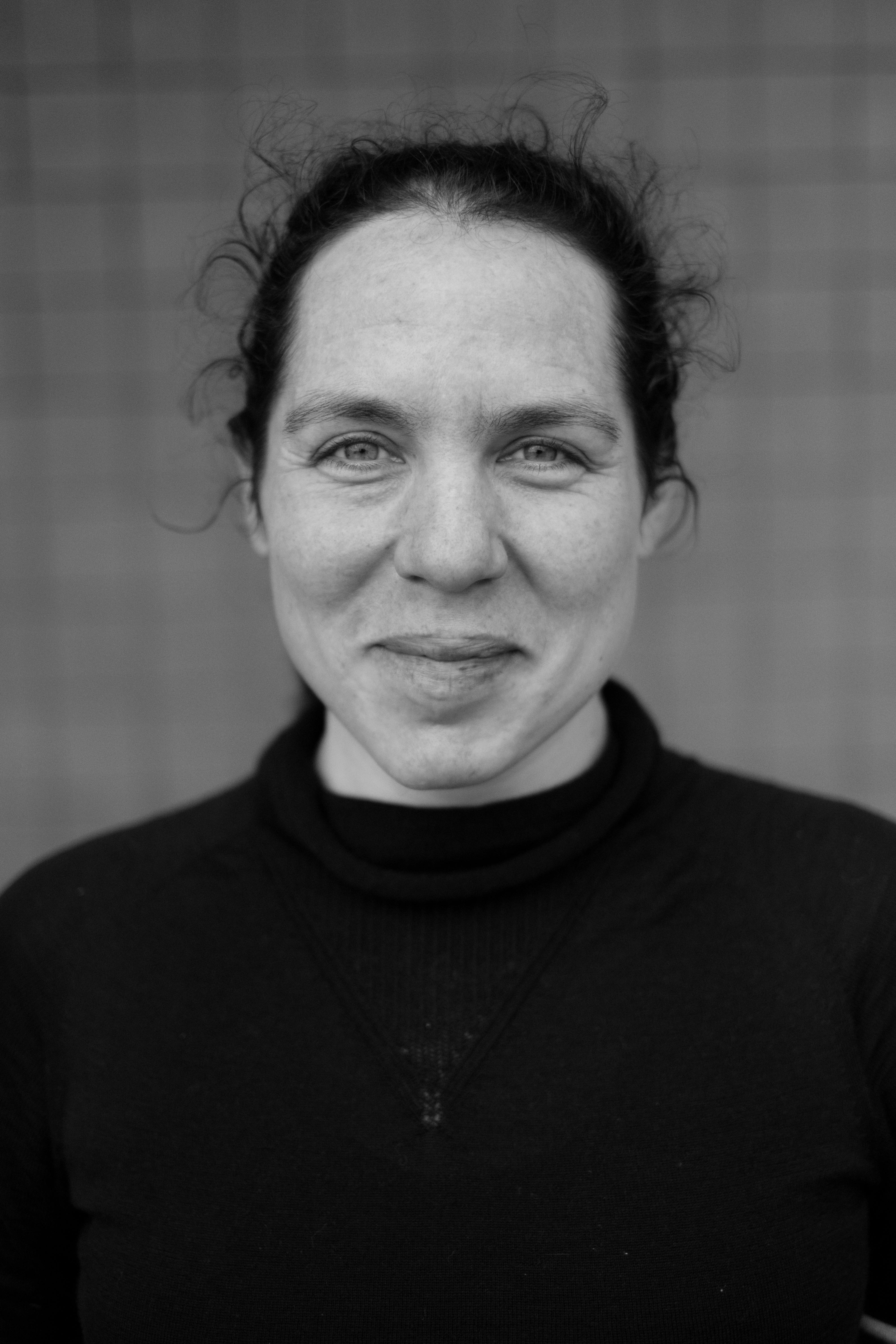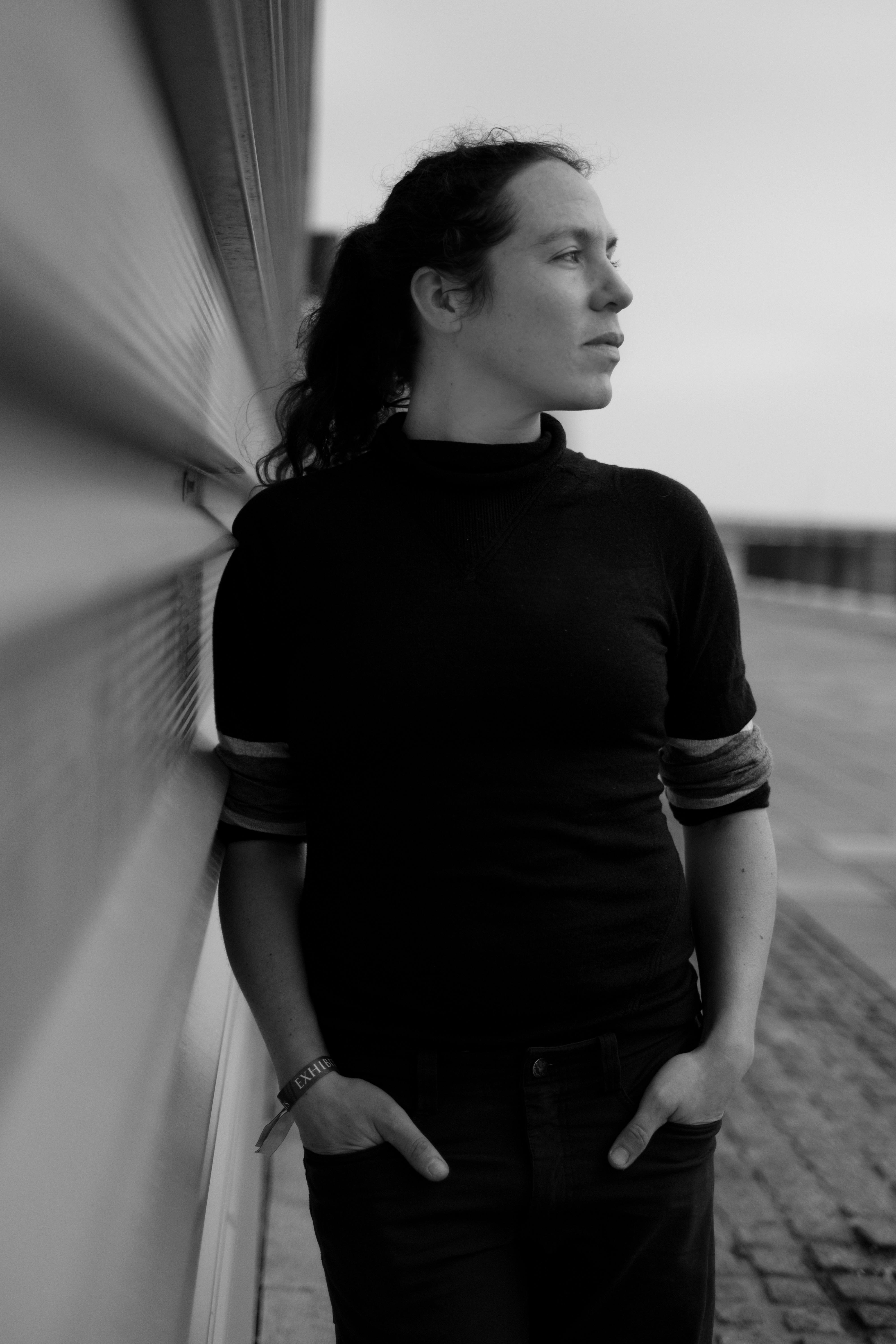Being capable
This is a story about Emily Chappell, a woman quite out of the ordinary. It’s a story about pushing limits, about nostalgia and about never letting oneself get too comfortable.

Text: Silje Strømmen
Photos: Pål Laukli
“I moved to London after university and I hated it for months”, legendary London bike courier Emily Chappell says surprisingly.
“Then I got into cycling and that is what made me fall in love with the city. London is such a massive place and suddenly I had a way of getting around the city without using the public transport system. I felt better when I could stand at one place and know what was behind a building, what direction home was and all of that. You feel like you have more sense of ownership of a place. So then I loved London, for years and years”, she continues.
As a bicycle messenger (also known as a bike courier), she spent day-by-day happily riding the city carrying and delivering packages. In much contrast to when she first started riding in the city.
“I was terrified! When you start cycling in London you start at the hardest point, the very deep end. Cycling in London can be quite difficult, especially back then”.
“Back then” was in 2008, at the very start of the cycling boom. London lacked much of the fundamental infrastructure found in the city today. For years, Emily witnessed how the city changed around her, how the seasons shifted and got to know every little part of it, right down to the cobblestones. After having called London “home” for nearly a decade Emily left both the city and bike couriering.
“I went away for three months to cycle from Anchorage to Seattle and didn’t know that I had left couriering for good. I had left, but there was a chance that I would go back, but in the end I didn’t. It’s a bit like being an alcoholic or a smoker; it’s still in your system. You will always go on being a courier and there is always a chance that you will go back. And sometimes you will think, ‘I haven’t done it for 3 years so I have quit’, but it is a bit of an addiction”.
Exactly what it is about bike couriering that makes it so addictive is hard to explain, but Emily cites a combination of chemicals (adrenaline and endorphins) and the feeling that you know the inside out of a city that’s home to 8,674 million people.
“As a bike courier you feel like you are a part of the city, not exactly like you own it, but like you know it better than anyone else and you get to go through it, dance around it and see everything. I still feel weird when I go back to London now because I still know it really well and I can get from anywhere to anywhere without thinking, but every now and then there is something like a building that has changed, or a junction has changed and I feel really weird. What it is, it’s more a sense of embarrassment. Just because I feel like it’s my job to know everything. I’m good at it and it is inexcusable for me not to know this junction. Of course it is fine, I haven’t lived in London for over a year. Of course it will change. But it is this sense that it is slipping away from me”.
In an article for The Guardian Emily explored just that sense, and addressed the feeling of secretly, somewhat guiltily, mourning the days when she used to have the traffic to herself.
“It was a sense of guilty nostalgia because things are changing for the better for everyone, so I think I have to celebrate that”, she explains.
“But I miss the days when it was just me. I really like riding in fast traffic and I don’t like bike lanes that much. They’re kind of slow and you just treble along with anyone else. I liked being a daredevil and riding along to the rhythm of the road. Other cyclists don’t have such a good rhythm. And I miss that”.
Although the feeling of nostalgia is still very much present, Emily tries to tell herself that it’s fine and that the changes are ultimately for the better. In the article she concluded:
“And London is now aware that it is becoming a cycling city. Every week, more of my journeys take place on well-built two-lane cycle tracks, segregated from the motorised traffic by curbs and bollards. I tell myself over and over again that this is ultimately a good thing, that the city’s growing cycle infrastructure is giving more and more people a safe, healthy, enjoyable way to get to work, and that London is better for it. I remind myself that in less nostalgic moods I would be happy to see cyclists outnumbering drivers”.

“It’s the same thing about London”, she says and draws a line to the constant changes of the British capital.
“It changes in a lot of ways that I don’t like, and a lot of ways that I do. I don’t want to get into this habit of always condemning ‘the horrible new buildings going on’ and the fact that the whole city is turning into glass and plastic. In every area that they have put up new buildings in, some people have said, “Oh this is a monstrosity”. Maybe it is ok? In every area there are good things and bad things. Things change, and it is much better if you try to find the positives”.
Don’t for a second think that Emily is that kind of person who falls back on nostalgia due to comfort and security. As you could probably guess by the strong and determined look in her eye, Emily aims for the process of struggling, learning and getting better.
“There was one summer, the summer of 2010, when I really felt like I was on the top of couriering. I just rode around London, I didn’t have future plans and I was just in, that, moment. And there was a sense of guilt and a sense of ‘I should be doing more than this’, but hey, lets just enjoy it for the summer. And it was a really good summer! And it was at the end of that summer I realized I needed to go a bit further. As soon as you get comfortable, you got to move on”.
And move on she did. These days she balances body and soul (and bank balance) by combining riding longer trips, like the Transcontinental Race, with copywriting and editing (she does after all have a background in academia that she doesn’t often admit to) and in 2016 she released her memoirs from her days of bike couriering “What Goes Around”. Her mindset towards biking however has never changed.
“I like having a challenge. When I started couriering I was terrible. I was very slow, got things wrong and was worried that they might fire me. At the time I didn’t really consciously realize that I was doing this, but I really felt like I needed to be good at couriering”.
Hard work and stubbornness led her to become one of the best. After realizing that she rode several thousand kilometres as a bike courier, and then again realising how far that would equal if she just stretched that line out, she started looking into her next big adventure.
“That was one of the moments where I thought “maybe I should go a bit further”. So then I started out with the long-distance touring. Again at the beginning I felt really scared and stupid and felt like I had to get on top of it.
After going on longer trips in both Asia and Alaska, she started hearing about longer races, like the Transcontinental, one of the world’s toughest ultra-endurance races. The route takes the riders across Europe for approximately 3,200 to 4,200 km (a distance that takes the winners between seven to ten days to finish). In 2015, she had to drop out halfway, but in 2016 she returned and cycled the full route from the Flemish city of Geraardsbergen to Çanakkale, a Turkish Seaport on the Anatolian coast of the Dardanelles. She finished seventh.
“It is always something that starts off in my subconscious, so I cant always tell you why I want to do something. But by the time I became aware that I wanted to do the Transcontinental and stopped denying that I was interested, my next thought was of course I wanted to do this, why wouldn’t I?”
The decision took her back the starting point, feeling frightened and worrying that she would make bad decisions.
“I think it is the same mindset that keeps dragging me through everything. And I do credit couriering and riding through London as setting me on this because practically it meant that I was used to getting up every single day to get on my bike and bike all day, even when I was tired or ill. You just need to go because it is your job and if you don’t, you don’t get any money. So I’m quite good at the day-after-day-after-day thing. But also I think couriering was my first really big adventure. I had been quite conventional and well behaved up to that point, and I had always wanted to be a rebel and to be someone cool. And I just wasn’t. Couriering was something I did that was a bit scary and that was physical, challenging and adventurous, and people thought it was dangerous. And I did it”, she says.
“That was when I realised that I was capable”.